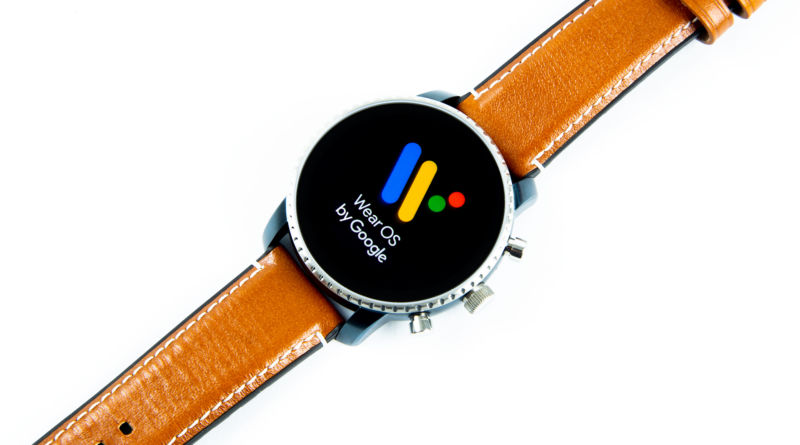
At Google’s I/O 2021 conference, the company announced what sounds like a complete re-launch of Wear OS, with Samsung as a major partner. The biggest remaining hardware vendor for Wear OS is fashion company Fossil Group, and in a weekend interview with CNET, the company shed a bit more light on the project.
“Premium” seems to be the name of the game for the revamped Wear OS. Fossil is currently charging $350 for the Fossil Gen 5 LTE, while an LTE-equipped Apple Watch costs closer to $500. When the new Wear OS comes out, we’ll probably see watches more in line with Apple’s pricing. CNET came away from the interview saying, “The upcoming wave of Android-compatible watches will be entirely new, with new chips focused on faster performance and better battery life.”
Many sites concluded that existing watches would not be updated from the old Wear OS to the new Wear OS. Fossil responded by sending out a statement that didn’t deny the speculation and only said that “future upgrade plans are still being developed.” Samsung has said that Tizen watches won’t be upgraded to Wear OS, but that’s a completely different operating system.
It would not surprise me to hear that the new Wear OS will be a clean break from the old Wear OS. If the new Wear OS, supposedly developed “jointly with Samsung,” is targeting a modern hardware spec, it would be challenging to bring the existing devices forward. Wear OS has lacked a quality SoC option for some time, and while existing Fossil and other Wear OS watches might seem to only be a few years (or a few months) old, the Qualcomm chips they use have been obsolete for years.
Qualcomm’s seven-year SoC gap
Even devices like the Fossil Gen 5 LTE, which launched a few months ago, have the Snapdragon Wear 3100, which uses Cortex A7 CPUs and a 28 nm manufacturing process. Qualcomm’s gross neglect of the wearables space means this 2021 watch features state-of-the-art technology from 2014, so imagine running around today with a Snapdragon 801-powered Galaxy S5 and expecting updates.
On the other hand, Samsung’s Exynos division has not completely abandoned the smartwatch SoC market, and the upcoming Galaxy Watch 4—expected to be the launch device for the revamped Wear OS—is rumored to come with a 5 nm Samsung SoC. If we’re dating these chips by the manufacturing process, there are seven years of technology improvements between them. That’s the kind of hardware change that won’t lead to many devices being upgraded, since designing for something that slow would hold the platform back.
In 2020, Qualcomm did offer its first significant smartwatch upgrade in six years, the 12 nm Wear 4100, but manufacturers have mostly ignored that chip. The 4100 will be a year old at the end of the month, and it looks like this was a one-off update from Qualcomm and not the start of a yearly upgrade cycle that could lead to a viable smartwatch hardware platform. Fossil says it has “some pretty major hardware upgrades” coming for the new Wear OS; hopefully, the company is talking about more than the Wear 4100.
Over the past six years, we’ve seen Wear OS hardware-makers slowly starve to death due to a lack of access to quality SoCs. Samsung entering the ecosystem with its own chips solves that problem for the company, but will any other hardware-makers get access? Samsung has occasionally sold Exynos chips to competing vendors, but it has never made a real business out of it, and it has never sold smartphone chips. Google says Wear OS is still open to hardware manufacturers, but if Samsung gets only Samsung chips and other Wear OS OEMs like Fossil get Qualcomm chips, the competition might as well close up shop now. This is how Samsung sold Tizen watches in the past, so maybe Samsung and Google are OK with it.
https://arstechnica.com/?p=1771366

